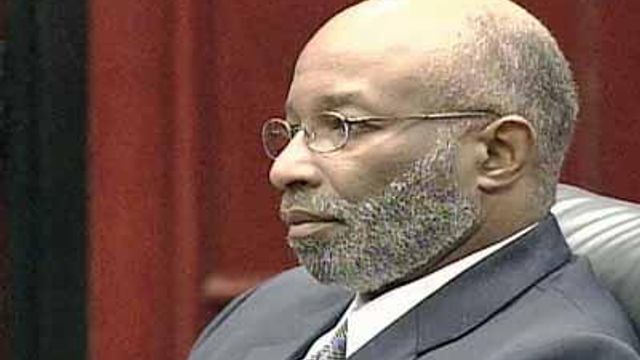Defense Paints Expelled Lawmaker as Compassionate, Distracted
The second day of the Wilmington Democrat's trial on four felony fraud charges opened in a Wake County courtroom Tuesday.
Posted — UpdatedThe second day of the Wilmington Democrat's trial on four felony fraud charges opened in a Wake County courtroom Tuesday morning.
In opening arguments Monday, prosecutors said Wright fraudulently obtained $150,000 in bank loans and pocketed another $190,000 in contributions meant for either his campaign or a health foundation he led in Wilmington.
Tens of thousands of dollars, instead, ended up in his personal accounts, Wake County District Attorney Colon Willoughby said.
"That organization really wasn't a tax-exempt organization. That organization was simply Thomas Wright," Willoughby said. "He was the person behind the curtain pulling the levels."
Wright's defense concentrated on presenting the strengths and shortcomings of the eight-term lawmaker, whose colleagues voted him out of office in late March.
Attorney Douglas Harris said that Wright was not in politics for himself and that he focused more on helping others than such tasks as bookkeeping.
"He is so interested in the big picture, ... in the big things he's doing," Harris said. "He doesn't pay attention to the small things."
Harris argued that Wright was simply bad at handling money and often did not deposit checks for months.
"You'll hear him testify that it's not uncommon for him to leave checks laying around on his desk, personal or otherwise," the defense attorney said.
When Wright finally got around to depositing some checks for the health foundation, its accounts had been closed, Harris explained, so Wright then put the money into his own account.
Harris contended that ultimately his client did not commit any fraud – merely bookkeeping mistakes.
"A man is entitled to a failure now and then," Harris said.
• Credits
Copyright 2024 by Capitol Broadcasting Company. All rights reserved. This material may not be published, broadcast, rewritten or redistributed.





